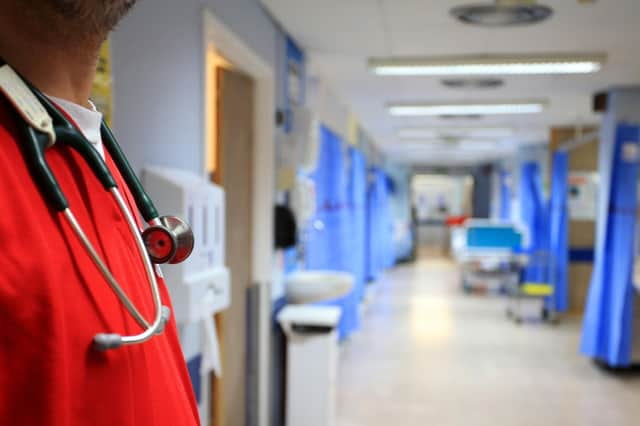Coronavirus: The NHS needs your help to save lives – Scotland's Chief Medical Officer


Together, in the months to come, we face unprecedented challenges as we manage the scale of the impact of coronavirus (Covid-19).
We have now taken measures to reduce the risk all of us have of getting this virus. The advice is that those with symptoms – a new persistent cough and/or fever – should isolate for seven days, and where they live with others the household should isolate for 14 days. The seven-day rule applies for those living alone.
Advertisement
Hide AdAdvertisement
Hide AdThe over-70s, those who get the flu vaccine for health reasons, and pregnant women should cut back on all non-essential social contact and work from home if they can. Clinically high-risk people, such as chemotherapy patients, will be contacted by the health service and told what to do very soon.
Everyone else should have limited social contact, work from home if possible, avoid public transport if you can. If we do become infected, we all have a responsibility to reduce the risk we pose in terms of passing it on to others, and in particular, passing it on to those most vulnerable to more serious illness.
We depend on the resilience of our NHS and the powerhouse of people who work in it to ensure we feel confident in the high standard of healthcare in Scotland. Protecting and saving lives is our primary goal and we need everyone’s help to achieve this.
The decisions we have to make and the changes that will start to take shape across the NHS are vital in supporting our health service to provide the best care possible to the people of Scotland. I appreciate the worry that individuals, families and the general workforce will begin to feel but I can assure everyone that we are already working, and will continue to do all that is necessary, to deal with the challenging health issues that will arise as we tackle coronavirus.
This includes crucial steps to increase the capacity of hospitals – with boards looking to make available 3,000 beds for Covid-19 – as well as to ensure there is necessary training for staff.
Our first goal is to double the intensive-care unit capacity in Scotland. Boards are working towards this by providing the necessary training for staff and by repurposing facilities. Understandably, to achieve these changes and prepare for what lies ahead we have to make the difficult decision to stop our normal programme of non-urgent, elective operations. This means operations for non-life threatening reasons that can be postponed without a negative clinical impact, such as elective gallbladder and hernia surgery, non-trauma orthopaedic surgery such as hip and knee operations, and elective gynaecological operations.
I want to be very clear – vital cancer treatments, emergency, maternity, and urgent care will continue. A national cancer treatment response group has been established to provide ongoing advice and support around cancer treatments, and ensure all appropriate measures are undertaken in the present situation to protect those living with cancer.
We are also working to produce detailed guidance for pregnant women, new mums and maternity professionals to help shield them from infection as part of providing high-quality maternity care.
Advertisement
Hide AdAdvertisement
Hide AdWhat is absolutely crucial is that we do not underestimate the importance of the health advice, nor disregard the simple measures that can make a real difference such as hand washing. You can help – there is something you can do. By following the advice we can all play a part in protecting ourselves and others.
Dr Catherine Calderwood is Scotland’s Chief Medical Officer